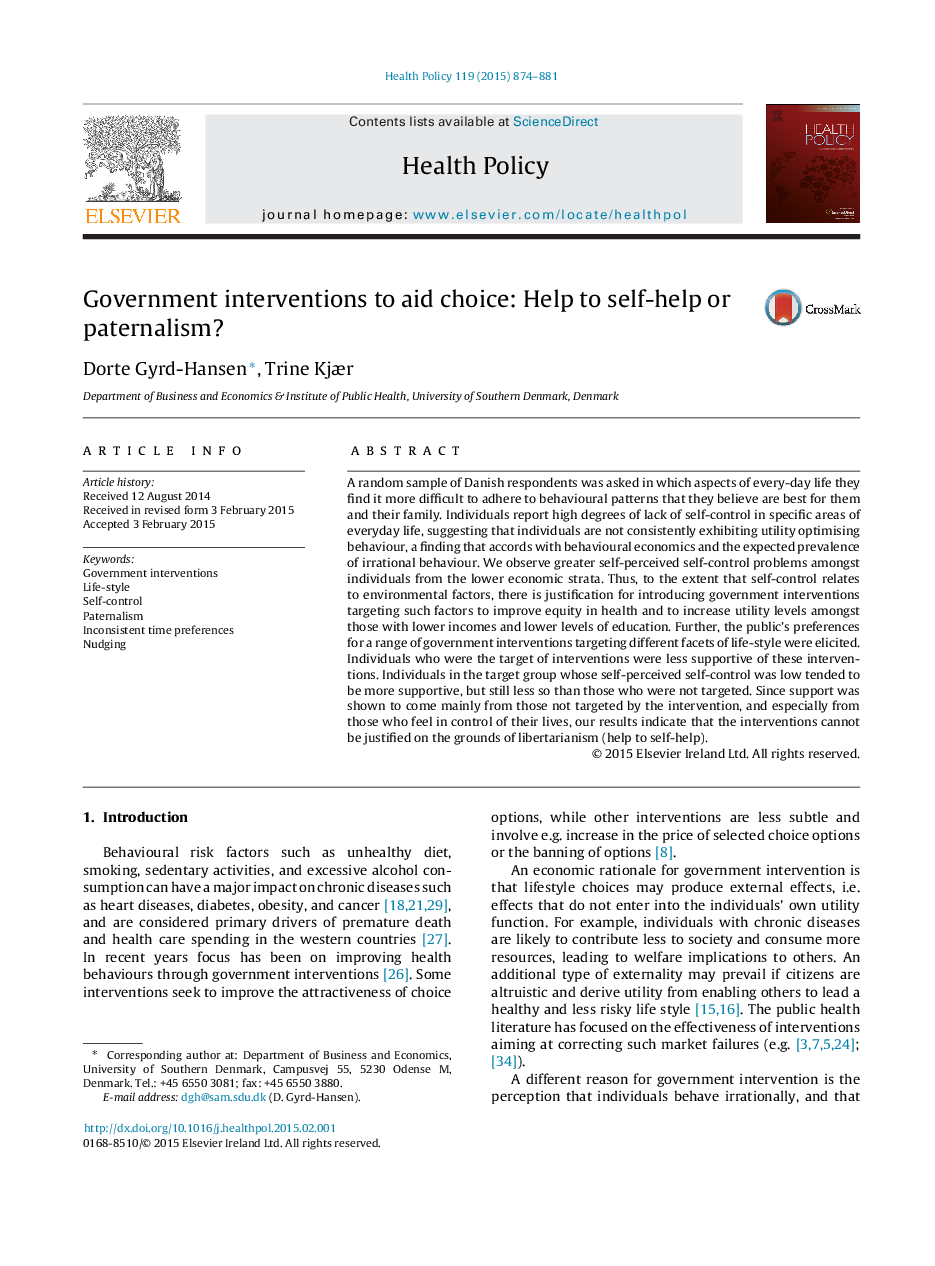| کد مقاله | کد نشریه | سال انتشار | مقاله انگلیسی | نسخه تمام متن |
|---|---|---|---|---|
| 6239292 | 1278992 | 2015 | 8 صفحه PDF | دانلود رایگان |
- Poorer healthy life-style is associated with lower perceived self-control.
- Individuals who are less educated and have lower incomes report less self-control.
- Interventions targeting life-style find little support in target groups.
- Smokers who report little self-control tend to be more supportive of interventions.
- Paternalism is the main driver of support for interventions targeting life-style.
A random sample of Danish respondents was asked in which aspects of every-day life they find it more difficult to adhere to behavioural patterns that they believe are best for them and their family. Individuals report high degrees of lack of self-control in specific areas of everyday life, suggesting that individuals are not consistently exhibiting utility optimising behaviour, a finding that accords with behavioural economics and the expected prevalence of irrational behaviour. We observe greater self-perceived self-control problems amongst individuals from the lower economic strata. Thus, to the extent that self-control relates to environmental factors, there is justification for introducing government interventions targeting such factors to improve equity in health and to increase utility levels amongst those with lower incomes and lower levels of education. Further, the public's preferences for a range of government interventions targeting different facets of life-style were elicited. Individuals who were the target of interventions were less supportive of these interventions. Individuals in the target group whose self-perceived self-control was low tended to be more supportive, but still less so than those who were not targeted. Since support was shown to come mainly from those not targeted by the intervention, and especially from those who feel in control of their lives, our results indicate that the interventions cannot be justified on the grounds of libertarianism (help to self-help).
Journal: Health Policy - Volume 119, Issue 7, July 2015, Pages 874-881
